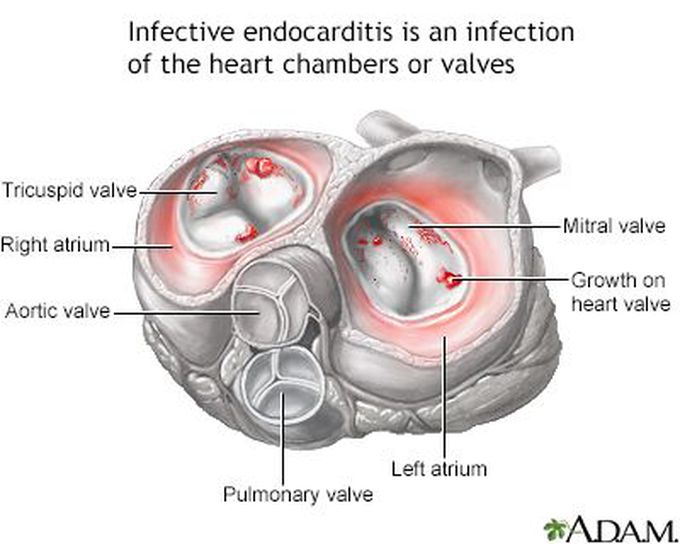


Causes of endocarditis
Most of the time, a bacterial infection causes endocarditis. Dental procedures (particularly tooth extractions) and endoscopic examinations can cause bacteria to get into your blood. Sometimes, bacteria from your mouth, skin, intestines, respiratory system or urinary tract may be able to get into your bloodstream when you’re: Eating. Brushing your teeth. Flossing your teeth. Pooping. This can cause endocarditis. The bacteria rapidly form colonies, grow vegetation and produce enzymes, destroying the surrounding tissue and opening the path for invasion. Normal heart valves are very resistant to infection. However, bacteria can attach to defects on the surface of diseased valves. Replacement heart valves are more prone to infection than normal valves.

